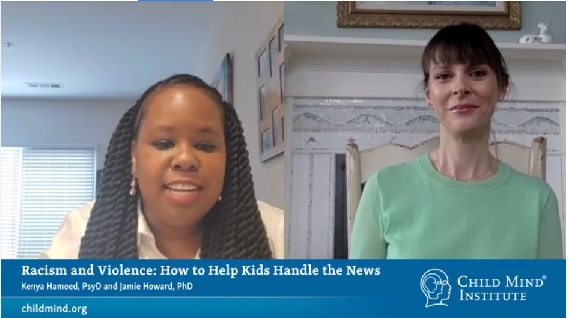Mother Father please explain to me
Why the world’s so full of mystery
A place so bitter and still so sweet
So beautiful and yet so full of sad, sad
Dave Matthews Band, Mother Father.

____________
June 19, 2020
A webpage in CPIR’s series Talking about Race
How do we talk to our children about race and violence, what do we say? Their eyes and ears take in the news, just as ours do. Regardless of their age, children are bound to be frightened and mystified by what’s been going on. Add to that turmoil that they also see their parents, siblings, aunts and uncles, and family friends full of upset and even outrage, no doubt discussing racial matters with unguarded candor.
So–what do we say to our young people? Is it possible to explain current injustices, let alone centuries-old turbulence and racism? Here are many resources that can help guide our words and actions, ever mindful that the future belongs to them but is being built now.
__________________
Talking with our Children about Race and Racial Violence
How to talk with kids about racism and racial violence
(Cómo hablar con los niños sobre el racismo y la violencia racial)
It starts with checking in on yourself, creating safe spaces, listening deeply to our children, and other helpful actions identified in this article from Common Sense Media.
Racism and violence: How to help kids handle the news
(Racismo y violencia: Cómo ayudar a los niños a sobrellevar las noticias)
Support for difficult conversations. From the Child Mind Institute.
Video | A clinical perspective on talking to kids about racism
38-minute video of advice from the expert clinicians at the Child Mind Institute.
Let’s talk! | Discussing race, racism and other difficult topics with students
Educators play a crucial role in helping students talk openly about the historical roots and contemporary manifestations of social inequality and discrimination. Learning how to communicate about such topics as white privilege, police violence, economic inequality and mass incarceration requires practice, and facilitating difficult conversations demands courage and skill. Teachers can use the strategies in this resource as they prepare to facilitate difficult conversations about race and racism. 24 pages, from Teaching Tolerance.
How to talk to kids about difficult subjects
In a world where even little kids learn about horrific subjects, it’s important for parents to put things in perspective, field questions, and search for answers together.
How do I help my kid understand race?
We are witnessing some stark, disturbing images of the racial divide these days. As parents, we want to shield our kids from the brutality we see on the evening news, yet we know it is important that they understand what is happening and why. We need to talk to our kids about race and identity.
How White parents can talk to their kids about race
A 10-minute listen, from NPR.

10 children’s books about racism and activism to help parents educate their kids
Talking to our children about racial justice and police brutality isn’t easy. Do it anyway.
31 children’s books to support conversations on race, racism, and resistance
Research from Harvard University suggests that children as young as 3, when exposed to racism and prejudice, tend to embrace and accept it, even though they might not understand the feelings. By age 5, white children are strongly biased towards whiteness. To counter this bias, experts recommend acknowledging and naming race and racism with children as early and as often as possible. Children’s books are one of the most practical tools for initiating these critical conversations; and they can also be used to model what it means to resist and dismantle oppression.
Resources for talking about race, racism, and racialized violence with kids
Now here’s a reading list! It’s full of helpful materials, interviews, and to-the-point guidance.
________________
Would you like to visit another page in the “Talking about Race” series?
- Talking about Race landing page
- Looking Within Ourselves
- Listening and Learning
- Talking to Our Children (you’re already here)
- Helpful Websites and Organizations


